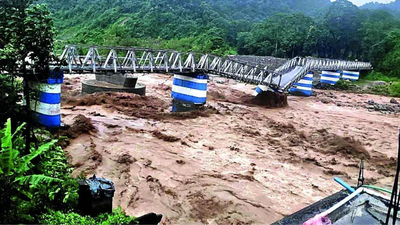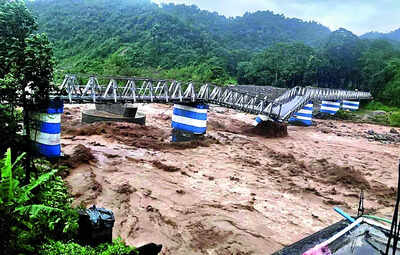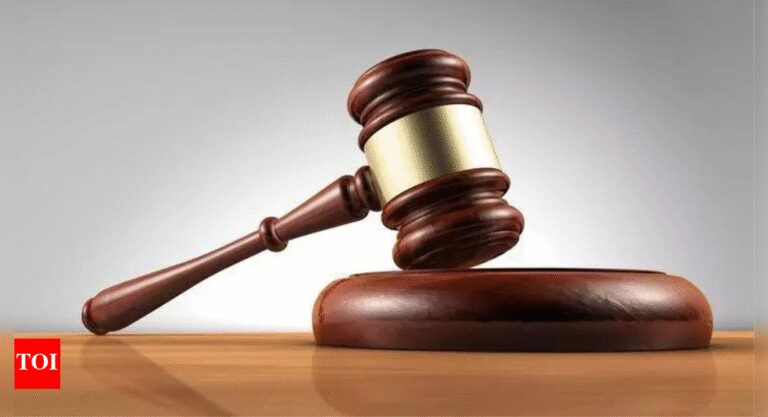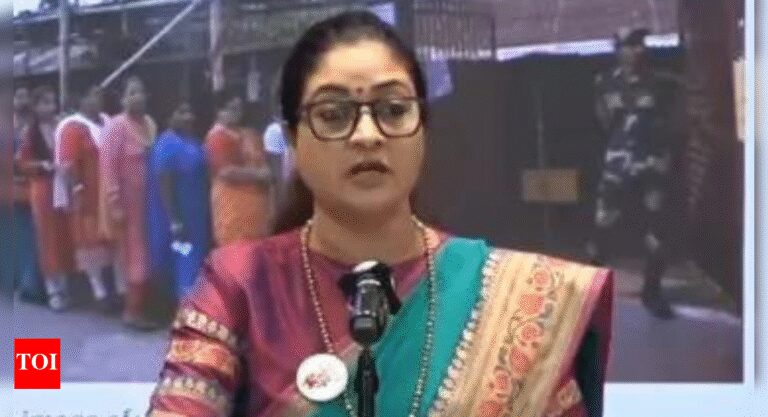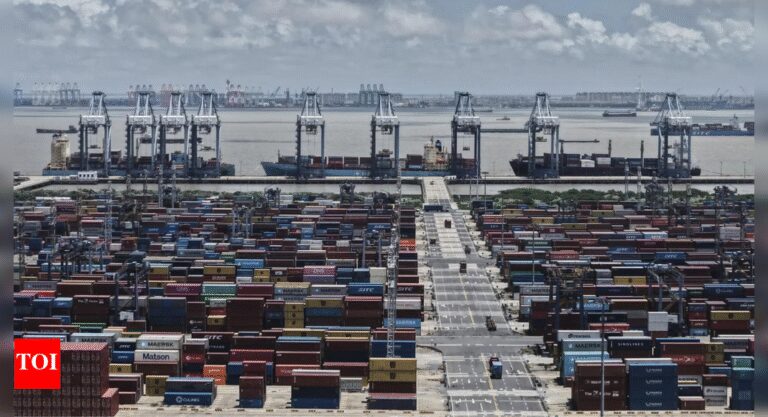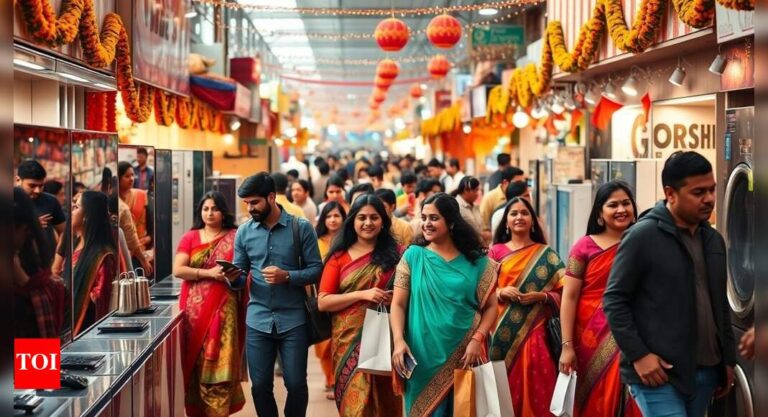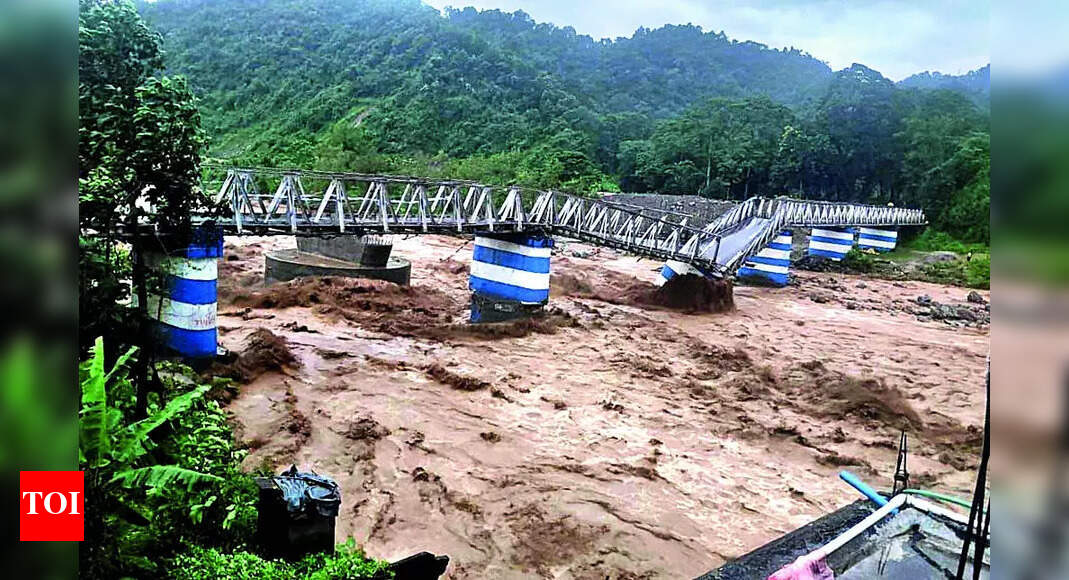
Relentless overnight rain lashed north Bengal’s hills and plains Saturday night and early Sunday, unleashing landslides, washing away bridges and flooding towns from Darjeeling to Cooch Behar. At least 28 people died – most of them in the hill station of Mirik – and dozens remained missing as rescue teams struggled to reach remote areas cut off by the deluge.Darjeeling recorded 261 mm in 24 hours from 8 am Saturday, classified as ‘extremely heavy rainfall’, while Cooch Behar logged 192mm and Jalpaiguri 172mm. Gajoldoba (Jalpaiguri) reported 300mm of rain. The worst devastation was reported from Mirik, Jorebunglow, Maneybhanjang, Sukhiapokhri and Falakata.With 13 dead, tourist town of Mirik badly hit, direct link to Siliguri cut offThirteen bodies were found in Mirik, known for its Sumendu lake and views of Kanchenjunga. Ten others, including tourist Himadri Purkayet from Kolkata, were missing till Sunday evening. Officials warned that the toll may rise once teams reach the upper hills.PM Narendra Modi expressed grief on social media: “Deeply pained by the loss of lives due to a bridge mishap in Darjeeling… The situation is being closely monitored in the wake of heavy rain and landslides. We are committed to providing all possible assistance.”
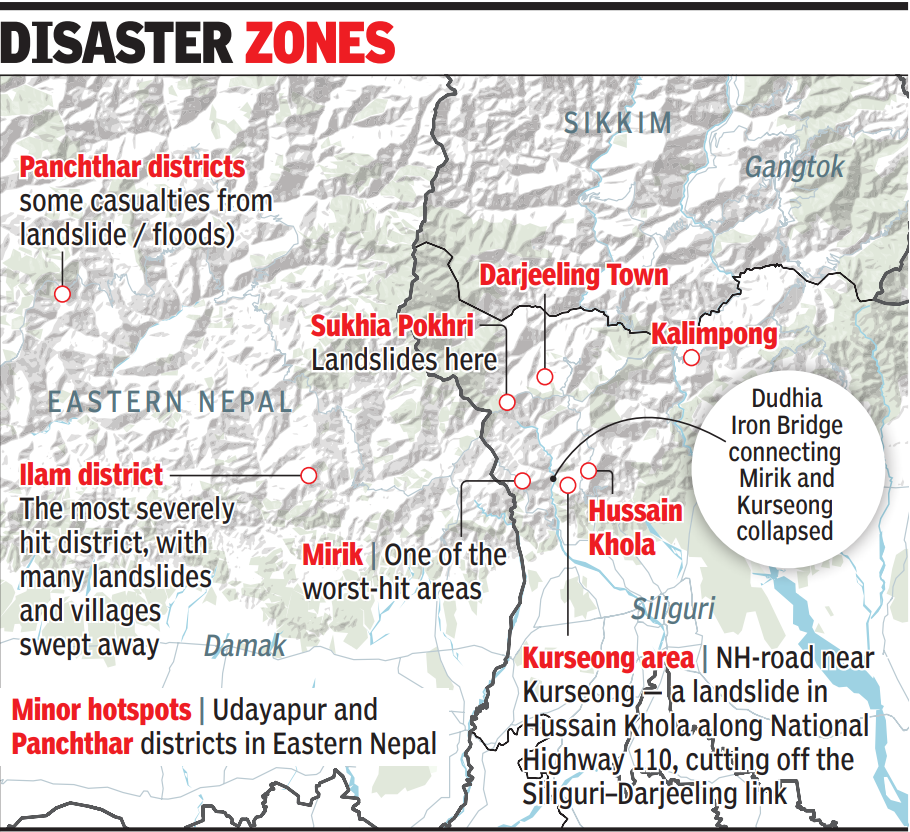
The downpour destroyed critical links: an iron bridge on Balasan river at Dudhia — the only direct route between Siliguri & Mirik — collapsed, isolating nearby communities. Another bridge at Pulbazar was badly damaged, cutting off Thanaline and parts of Bijanbari. Rohini Road, a major connector between Darjeeling and the plains, also caved in. NH10, the lifeline to Sikkim, was shut at Chitrey after landslides. Darjeeling Himalayan Railway suspended service indefinitely.Flash floods and landslides turned post-Durga Puja holidays in north Bengal into a desperate fight for survival. Hundreds of tourists across Dooars, Kalimpong, and Darjeeling are stuck in hill resorts and wildlife zones. They reported power outages, poor connectivity, and washed-out roads. Some clung to ziplines or ropes to cross torrents. “Water currents were so strong we had to form a human chain,” said Kolkata resident Priya Banerjee, who walked four hours before finding a vehicle.In Sisamara, businessman Saurav Palit and his family slogged 6km through mud and floodwater, and later paid Rs 4,000 for a 30-minute drive to Falakata. In Jaldapara, some waded waist-deep through rising waters before being rescued — a few even ferried out on elephant back. “We were stranded all day before forest officials brought elephants used for safaris to take us through flooded rivers to safer ground,” said Senjuti Ghosh from Kolkata, now staying in an Alipurduar hotel until her train home Tuesday night. Authorities shut all tourist spots and appealed to visitors to stay put until help arrived. Darjeeling SP Praween Prakash urged travellers to follow official police updates on social media. “Check advisories before venturing out,” he said.Travel chaos rippled across the region. Tourists trying to reach New Jalpaiguri station and Bagdogra airport missed trains and flights.CM Mamata Banerjee held an emergency virtual meeting with top officials and regional leaders, including Siliguri mayor Gautam Deb and GTA chief Anit Thapa, and announced she would visit the disaster zone Monday. “Several areas in both north and south Bengal have been flooded due to sudden huge rain and excessive river waters from Bhutan and Sikkim,” Banerjee posted on X. “Rainfall exceeded 300mm in 12 hours last night. I convey my heartfelt condolences to the families of the deceased and have ordered immediate assistance.”She directed closure of all tourist sites in affected areas & released emergency helpline numbers from the Nabanna control room, assuring tourists that rescue costs would be borne by the state.By Sunday afternoon, Army units and NDRF teams joined state agencies in rescue and restoration. With Mahananda, Jaldhaka and Teesta rivers running above danger levels, elephants, rhinos, deer, and bison were seen fleeing submerged forests.(With inputs from Suman Chakraborti, Debashis Konar, Basabdatta Sarkar, Nisha Chhetri & Srishti Lakhotia)

